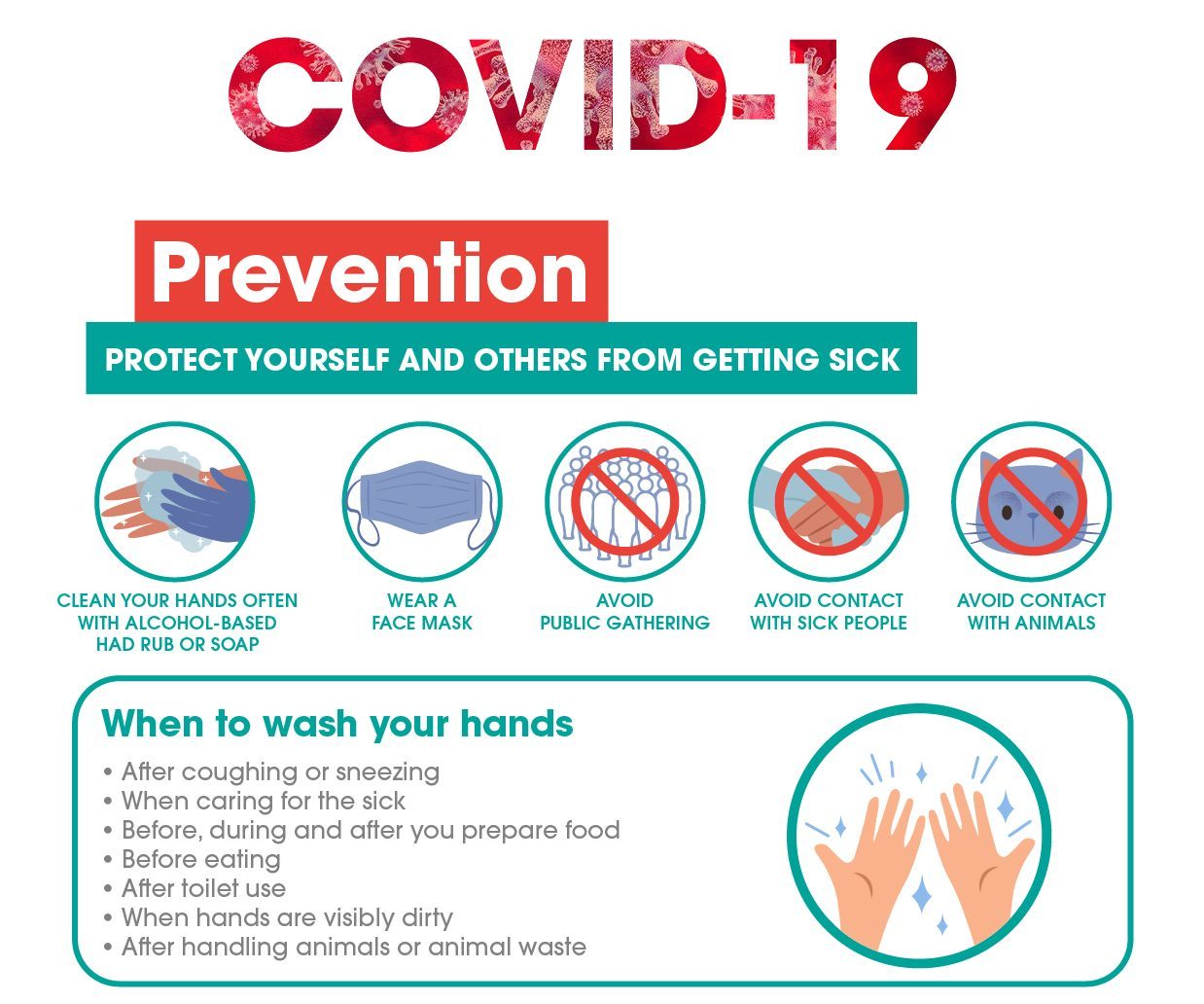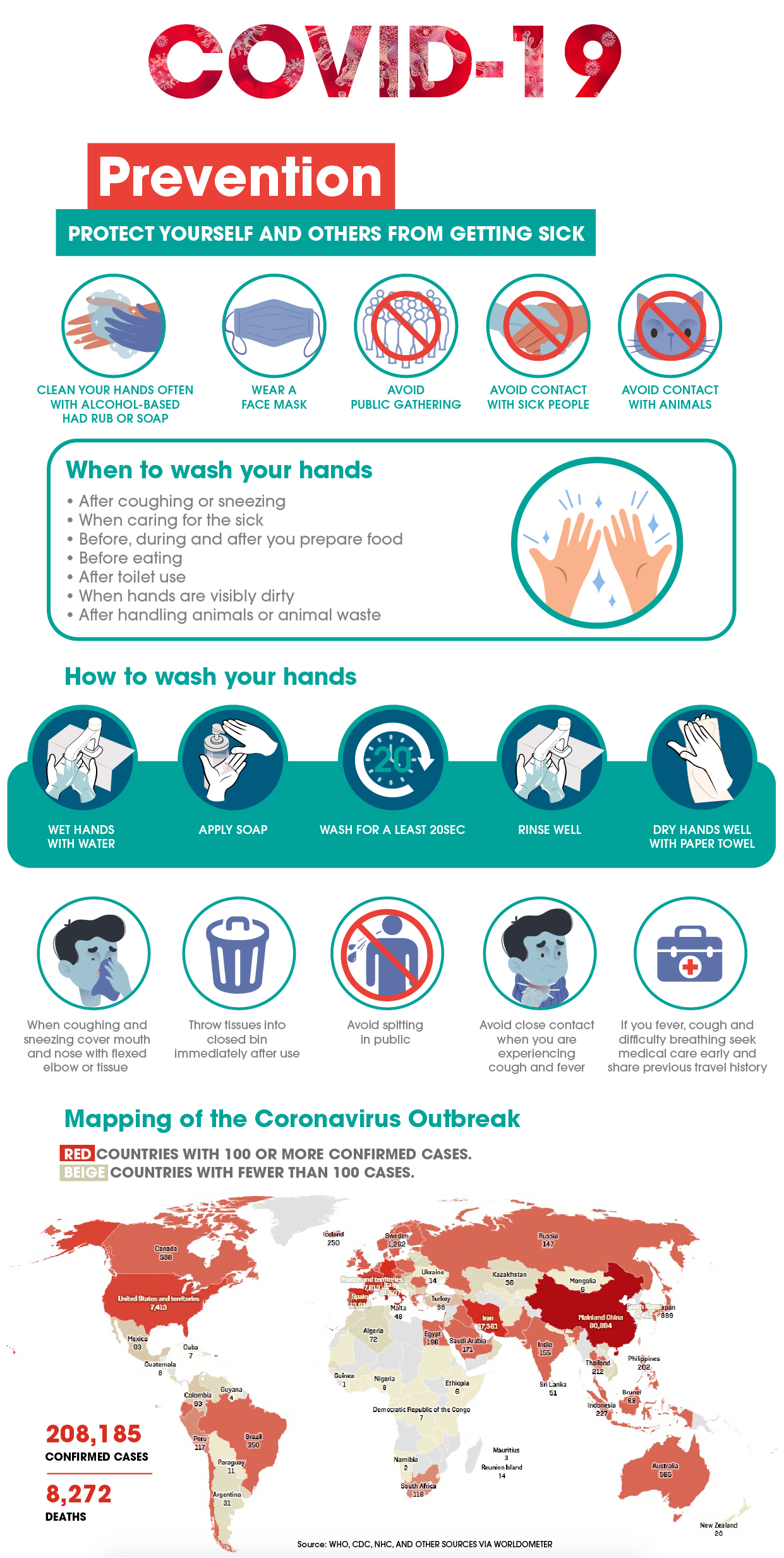

Coronaviruses are a large family of viruses causing illnesses ranging from the common cold to pneumonia. COVID-19, a new coronavirus strain has been identified in Wuhan, China in December 2019. It has been exported to other countries and cities. The coronavirus COVID-19 is affecting 176 countries and territories around the world. The global number of confirmed cases of COVID-19 has surpassed 219, 555. The World Health Organization (WHO) reminds all countries and communities that the spread of this virus can be significantly slowed or even reversed through the implementation of robust containment and control activities.
Symptoms
Most estimates of the incubation period for COVID-19 range from 1-14 days, generally around five days. The most commonly reported symptoms included fever, dry cough, and shortness of breath, and most patients (80%) experienced mild illness. Approximately 14% experienced severe disease and 5% were critically ill. Early reports suggest that illness severity is associated with age (>60 years old) and underlying medical problems like high blood pressure, heart problems or diabetes. Most people (about 80%) recover from the disease without needing special treatment. Only 1 out of every 6 people who gets COVID-19 becomes seriously ill and develops difficulty breathing.
How does the virus spread?
There is human to human transmission of COVID-19. For now, the evidence suggests spread is mostly via droplets. The virus is carried within droplets emitted from an infected person over a short distance, such as when the person coughs or sneezes. If these droplets come into contact with the eyes, nose or mouth of another person, directly or indirectly through hands that have come into contact with these droplets, the other person may become infected. Members of public are advised to remain vigilant and observe good personal hygiene practices.
Advice on prevention:
There is currently no vaccine to prevent coronavirus disease 2019 (COVID-19). The best way to prevent illness is to avoid being exposed to this virus. Here are general recommendations:
- Avoid close contact with people who are sick.
- Avoid touching your eyes, nose, and mouth.
- Stay home when you are sick.
- Cover your cough or sneeze with a tissue, then throw the tissue in the trash.
- Clean and disinfect frequently touched objects and surfaces using a regular household cleaning spray or wipe.
- Facemasks should be used by people who show symptoms of COVID-19 to help prevent the spread of the disease to others. The use of facemasks is also crucial for health workers and people who are taking care of someone in close settings (at home or in a health care facility).
- Wash your hands often with soap and water for at least 20 seconds, especially after going to the bathroom; before eating; and after blowing your nose, coughing, or sneezing.
- If soap and water are not readily available, use an alcohol-based hand sanitizer with at least 60% alcohol. Always wash hands with soap and water if hands are visibly dirty.
To view full article: Link

